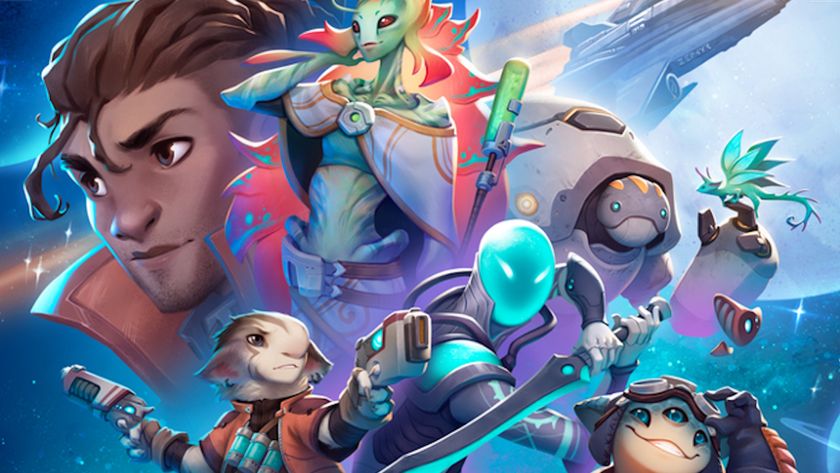I was depressed, anxious, and on the verge of suicide… then Zelda: Breath of the Wild saved me
Video games can be an incredible force for personal healing and coping - here’s the full story of how Zelda helped one of our writers with depression
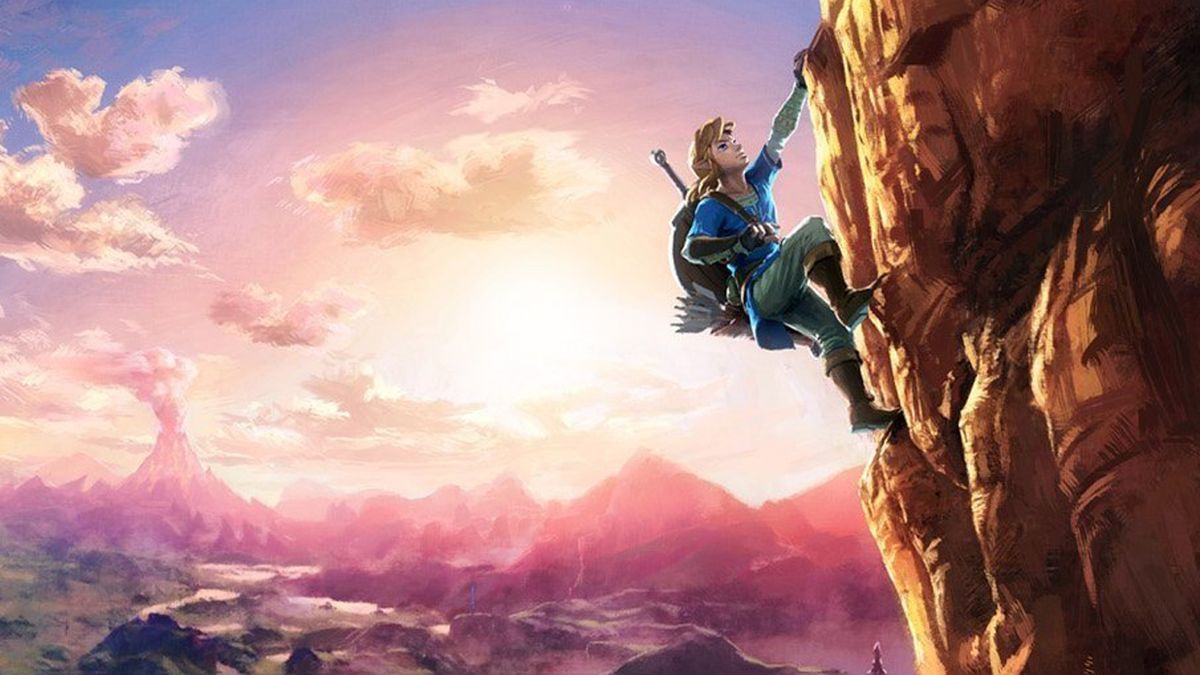
Until that night, I thought scary was airplane turbulence. I thought it was telling that one girl how much you like her. I thought it was movies about dudes who wear masks. I was wrong. I didn’t know what scary meant until that night. I didn’t know what scary meant until I found myself lying on a couch at 3:00 AM, paralyzed by a combination of desperation, hopelessness and benzodiazepine. I didn’t know what scary meant until, between the gasping and crying, I heard myself say something I never, ever thought I’d say.
“I want to kill myself.”
I can’t say depression is the scariest thing I’ve ever experienced because I can’t compare it to any other experience. It’s a daily struggle with pain and anxiety you never seem to win, and it consumes everything. Jobs, relationships, friends, dreams - it’s like a blackhole that sucks in all the things that mean something to you and tears them apart on a molecular level.
Depression was destroying my world. That’s why I’m so grateful I had another...
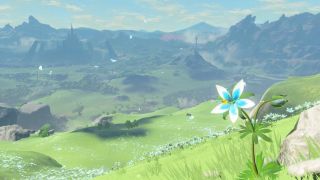
It’s amazing how much life can change in a day. You can wake up in your own bed with your own apartment and your own life, but you can fall asleep in your friend’s living room, your legs dangling over the edge of a couch and your marriage dangling over the edge of a divorce. Sometimes, all it takes is one unseasonably warm day in March to learn that no one lasts forever. Well, almost no one.
It's dangerous to go alone
I didn’t think about it much at the time, but looking back, it was almost poetic. Just as some of the most important relationships in my life were flickering, one of the oldest was about to be rekindled. Just as I was losing my marriage, my career, my ambition and my interest in getting off the couch in the morning, I was also gaining something. Something more important than I realized, and maybe more important than I realize even now.
When I needed a friend the most, there he was...
Sign up to the 12DOVE Newsletter
Weekly digests, tales from the communities you love, and more

"Link was waiting, and it meant nothing to me. Less than nothing. Imagine my surprise when it meant everything."
Granted, he dressed a bit differently these days, but it’s hard to forget pointy ears, especially when you’re as tight as Link and I were. We used to be inseparable, but you know how it goes. One guy pursues a career, the other guy pursues MotionPlus, things change. We still hung out over the years, but things were never the same as they used to be; back when we’d spend hours hunting spiders; back when finding a new lake or mountain was all it took for our imaginations to burst with possibility and wonder.
But that was a long time ago, and the possibility and wonder seemed to have dried up. We were different people now. In fact, Link looked like he wore people now and used their blood to draw shapes on his chest, and I looked like I’d only eaten twice in the last three days because I’d only eaten twice in the last three days.
When your actual stamina wheel is that low, it’s hard to get excited about a pretend one.
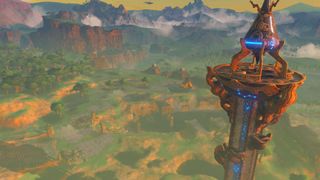
I trudged to the store to pick up my Switch, but I’d never been less excited about a Nintendo console. Even less so for the new Zelda game, Breath of the Wild. Days passed before I even took off the plastic wrap, a decision I can only imagine trying to explain to my 14-year-old self. I was holding a ticket to Hyrule, a place I used to cherish as wholly and genuinely as if it were real. But I didn’t care. Depression wouldn’t let me care.
Link was waiting, and it meant nothing to me. Less than nothing. Imagine my surprise when it meant everything.
It took about three minutes to figure out Breath of the Wild was a special game. The moment I saw the game world - a seemingly endless expanse of color, light and opportunity - was instantly one of the most powerful moments I’d ever experienced in gaming. It reminded me of stepping onto Hyrule Field in Ocarina of Time or watching the perspective pull behind the visor in Metroid Prime, one of those moments gamers spend years waiting for and even longer reminiscing over.
A fictional world that became a sanctuary
It had been months since I felt interest in doing anything, but I couldn’t pull myself away from Breath of the Wild. When I wasn’t playing it, I was thinking about it. When I wasn’t thinking about it, I was asleep. When I wasn’t asleep, I was playing it. I watched as my gameplay hours matched and surpassed and doubled those of my Nintendo Switch friends, some of whom had spent more than 100 hours in Hyrule themselves. But they played the game and moved on. I did not.
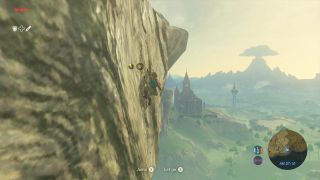
"The more I got to know Hyrule, the more it had to teach me."
In fact, I was doing everything but moving on. I was sneaking up on sparrows to snap the perfect photos for my compendium; I was walking over every bridge and hillside in Hyrule just to ensure I had the locations marked on my map; I was hunting all 900 Korok seeds, well aware of what a gargantuan task and letdown it would be. As 100 hours turned into 200 hours and 250 hours, I just kept looking for things to do. Anything to do. Whether it was stalking enemy encampments or searching for banana groves, I just wanted to be in Hyrule. And that’s when I realized I wasn’t there for the game: I was there for the world.
“Through the lens of depression, the difficulty of day-to-day living can become magnified, even overwhelming,” says Dr. Teal Fitzpatrick, a Pittsburgh psychologist with a decade of experience providing psychotherapy and psychological assessment services. Including to me.
“For individuals with severe depression, escapism that is not destructive is an essential part of the recovery process,” says Fitzpatrick. “Finding relief from the objective world, through creative expression, fiction, movies or gaming, can provide an essential and nourishing break from the very difficult work of managing depressive symptoms.”
A fresh perspective
When you’re depressed, the world around you tightens and constricts until it feels like you’re locked in a closet with a burned-out light. Even though you know what things are around you, you can’t see those things the way you used to. You can’t see anything the way you used to, and the world becomes a dark, suffocatingly small place.

But Hyrule is the opposite. In Hyrule, the light is so bright, it seems to come from everywhere, shooting like beams from each blade of grass. In Hyrule, I was always on the verge of something new, a promise of discovery that freed my spirit from the two-ton anchor of my own thoughts. In Hyrule, if only for a few hours, I could breathe. Breath of the Wild had become very significant to me, and it had nothing to do with gameplay or graphics or any of the things critics like to drool over. Hyrule had become my escape. It provided me with a sanctuary from myself, allowing me to interrupt the pain and anxiety with comfort and peace; the hopelessness and defeat with courage and optimism. And the more time I spent there, the more therapeutic it became. The more I got to know Hyrule, the more it had to teach me.
Yes, life is filled with storms. In Hyrule, they seem to come every hour, but they never last forever. And no matter how violent or dark the storms become, the clouds part, the sun breaks through and the sky celebrates with a display of color that makes the grey a distant memory.
Yes, the things we love break. In Hyrule, all my favorite swords and shields eventually shattered into pieces. Losing something - or someone - you love is devastating, but the pain of loss is temporary. There’s always a new love somewhere, just waiting for you to find it. And yes, ponies die, but in Hyrule, there’s always a horse god in some pond.
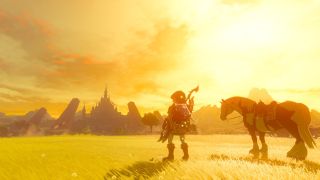
"Link never dismayed. He never collapsed in tears or doubted his resolve. Through Link, I was reminded what it’s like to do."
One of the most exhausting things about depression is how it amplifies what you feel. For the people closest to you, this is where your depression causes frustration. It’s impossible for them to understand your negativity when the objective reality seems so positive. You’re so fortunate, you’re so healthy, you’re so talented, you’re so loved - they repeat these things almost desperately, baffled and even hurt that you can’t see such obvious realities.
But it’s hard to see what’s real when your mind is so focused on what you feel.
“In depression, feelings are paramount,” says Fitzpatrick. “Often, individuals with depression describe feeling everything with such intensity that it’s physically painful, or feeling apathetic to the point of emptiness. Emotions become defining.”
Feeling to healing
All of my energy was absorbed by my feelings. I obsessed over every passing thought and emotion until I convinced myself an unanswered text meant 13 different worst-case scenarios, and they had all come true simultaneously. I stopped trying things. I stopped pursuing things, even the things that mattered most to me. I was so crippled by feeling that I stopped doing.
But that’s when I noticed something about Link. I learned a lot from Hyrule and its wonderful, enchanting complexities, but one of Breath of the Wild’s most important lessons came from its hero. Which is strange, considering he never actually says a word. Which is actually kind of the point.
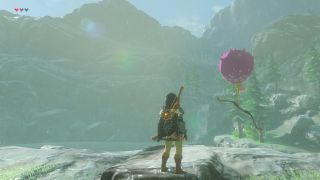
Link had just as many problems as the rest of us. His friends were dead, his memory was erased and his would-be girlfriend had been fighting a demon for the last century. And yet Link never dismayed. He never collapsed in tears or doubted his resolve. And he never let his feelings cloud his decisions or suppress his actions. Through Link, I was reminded what it’s like to do.
“In Zelda, the hero is not defined by emotions but by what he does, where he goes and how he moves forward,” says Fitzpatrick. “This ability to move into a character who exists by doing rather than feeling can provide immense relief and, in some cases, help model a type of purposeful action that can translate into daily living.”
It had been so long since I had a sense of achievement in my own life, I felt a tangible spark whenever Link and I accomplished something on our journey. In fact, our journey had become part of my treatment. I talked to Teal every week, I visited my doctor every month and on the days in between, I had Link. I had my Switch, which I could literally take anywhere I needed to. I had Hyrule, a world where I felt so at peace, I was able to work through some of the difficulties of the real world without even realizing it.
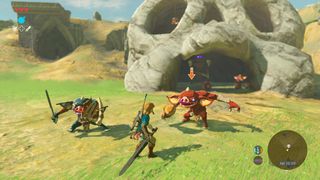
I just thought I was saving the princess.
I had spent nearly 300 hours in Hyrule, a number that shocked me given how short that time had felt, and I’d finally run out of things to do. I found all 120 shrines, I collected all 900 Korok seeds, I completed 100 percent of the map, I found and fully upgraded every piece of armor, I filled the Hyrule Compendium, I wrapped up every last side quest - short of finishing the game, I had nothing left to do there.
But I had a lot to do here.
I had taken steps in my treatment, but it was time to step further. Now that I was getting a grip on my depression and how to manage it, it was time to stop putting off my life. And the first step was to stop putting off the game.
“Individuals with depression often describe a different sense of time passing,” says Fitzpatrick. “Difficult moments can feel like an eternity, and pleasure and joy seem fleeting. Although Link may engage in side projects or parallel adventures, the ultimate goal is to move forward. Everything is temporary in his world, and this reminds us that everything is temporary in our world, too.”
No more Princesses to save
I had come to Hyrule for a reason. With no distractions left, it was time for Link and I to do what we came to do. After almost 300 hours, we finally stormed the castle, slew the demon and saved the princess. I’d faced Ganon in other Zelda games, but because of what Breath of the Wild had meant to me, this battle felt more intense than any of the others. It was bittersweet. It was emotional. It was cathartic.
It was over. My time in Hyrule was over. And it was time to face my world with the same kind of bravery.
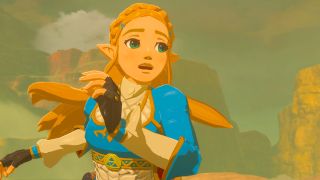
I’m not saying my demons are slain. I’m not saying I don’t have awful days when it’s a struggle to get off the couch. I’m not saying Breath of the Wild cured me -
you don’t exactly cure depression, certainly not with a video game. But it’s difficult for me to imagine how things would’ve unfolded without it. Depression is like a storm of emotion that rages inside of you every day, and it can be almost impossible to navigate those winds. Breath of the Wild was like my paraglider.
I’d be lying if I said it wasn’t difficult to read the words as they appeared on the screen. The finality of seeing ‘The End’ hit me like a cannonball in the chest. What if I slipped back? What if I had another one of those sweaty, sleepless nights? What if I heard myself say those words again? And that’s when Breath of the Wild dropped its final lesson on me.
There are no more princesses to save, dude. It’s time to save yourself.
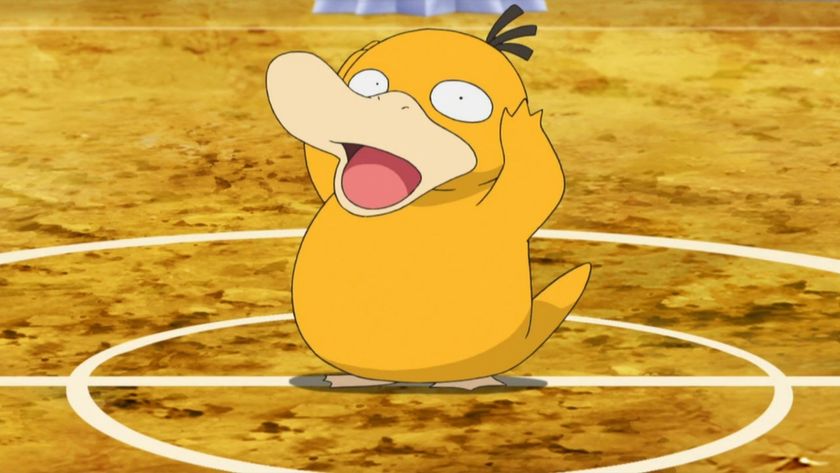
Pokemon reaches settlement in lawsuit over mobile game "Pocket Monster: Remake," operators "sincerely apologize" and say they've "learned our lessons"
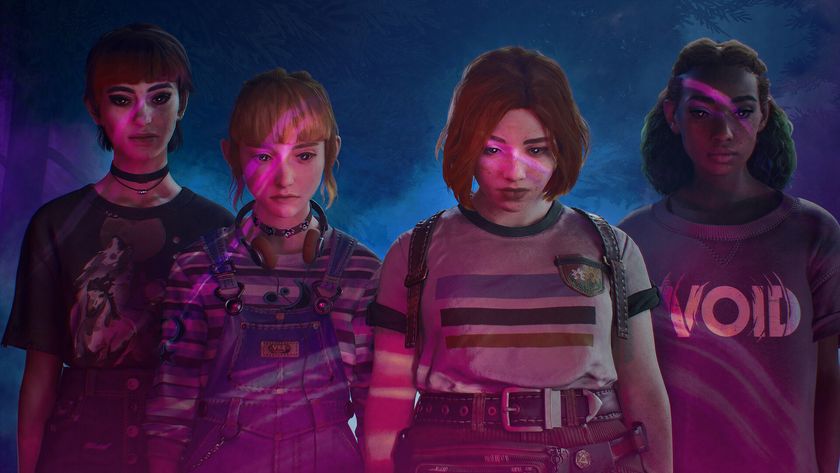
Life is Strange director says Don't Nod returned to its episodic roots in Lost Records because he's not "invested" in Netflix's binge model
Most Popular






